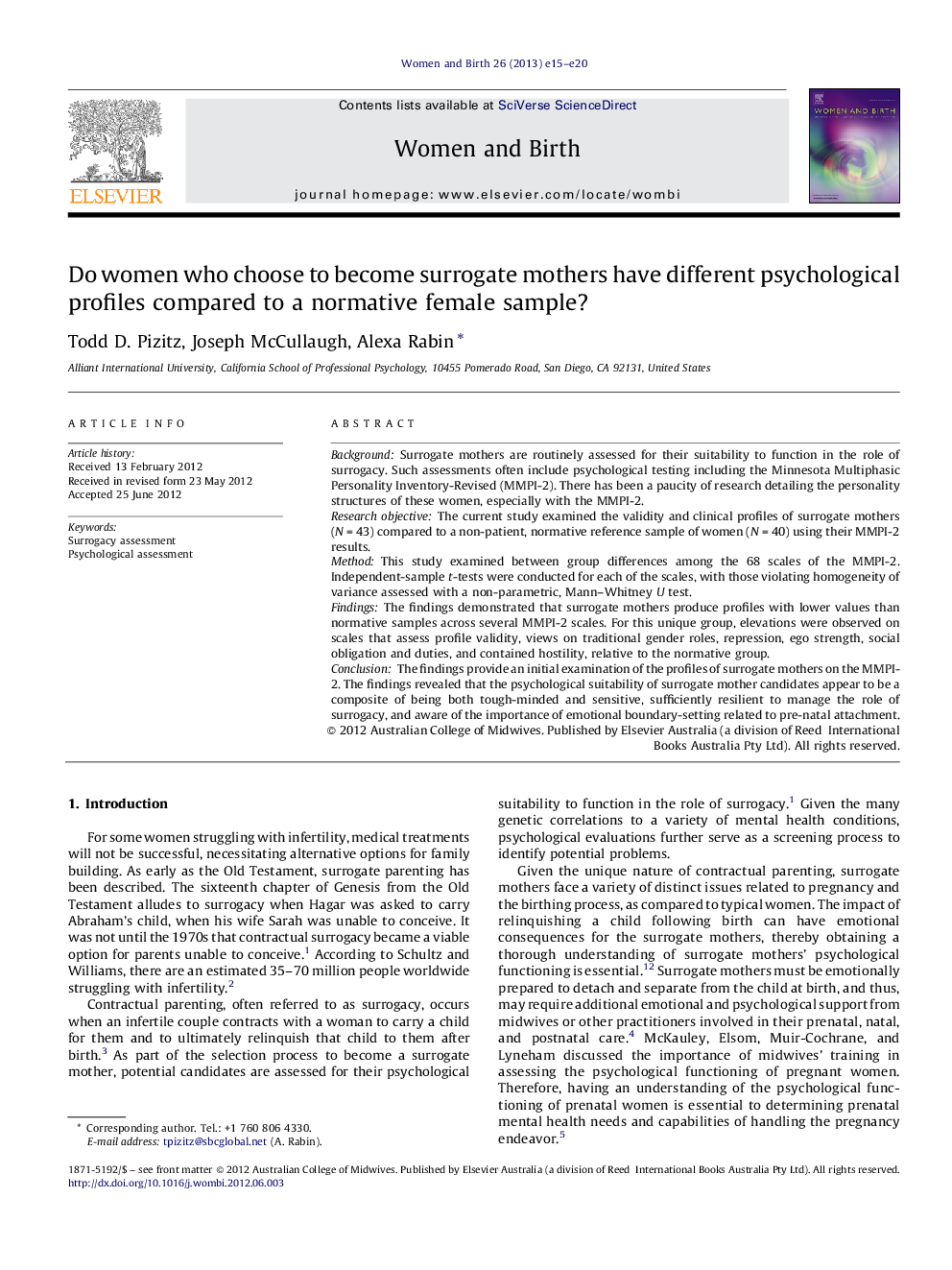| Article ID | Journal | Published Year | Pages | File Type |
|---|---|---|---|---|
| 2636086 | Women and Birth | 2013 | 6 Pages |
BackgroundSurrogate mothers are routinely assessed for their suitability to function in the role of surrogacy. Such assessments often include psychological testing including the Minnesota Multiphasic Personality Inventory-Revised (MMPI-2). There has been a paucity of research detailing the personality structures of these women, especially with the MMPI-2.Research objectiveThe current study examined the validity and clinical profiles of surrogate mothers (N = 43) compared to a non-patient, normative reference sample of women (N = 40) using their MMPI-2 results.MethodThis study examined between group differences among the 68 scales of the MMPI-2. Independent-sample t-tests were conducted for each of the scales, with those violating homogeneity of variance assessed with a non-parametric, Mann–Whitney U test.FindingsThe findings demonstrated that surrogate mothers produce profiles with lower values than normative samples across several MMPI-2 scales. For this unique group, elevations were observed on scales that assess profile validity, views on traditional gender roles, repression, ego strength, social obligation and duties, and contained hostility, relative to the normative group.ConclusionThe findings provide an initial examination of the profiles of surrogate mothers on the MMPI-2. The findings revealed that the psychological suitability of surrogate mother candidates appear to be a composite of being both tough-minded and sensitive, sufficiently resilient to manage the role of surrogacy, and aware of the importance of emotional boundary-setting related to pre-natal attachment.
